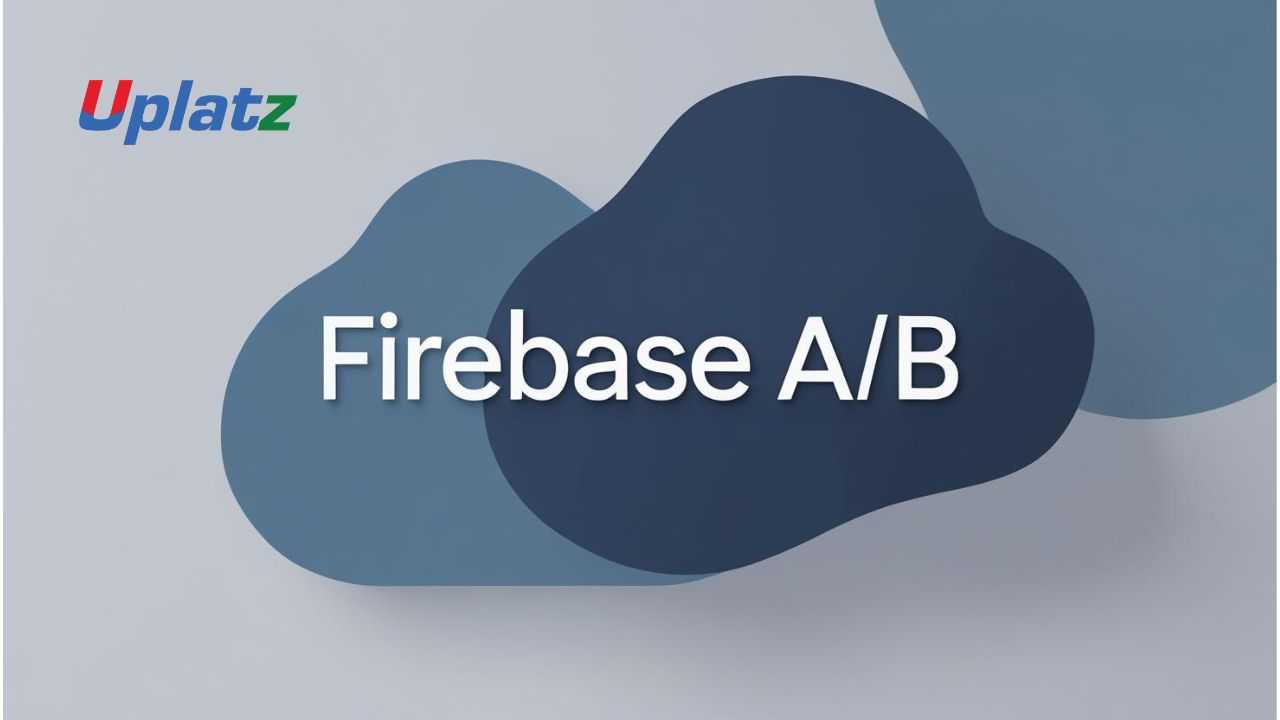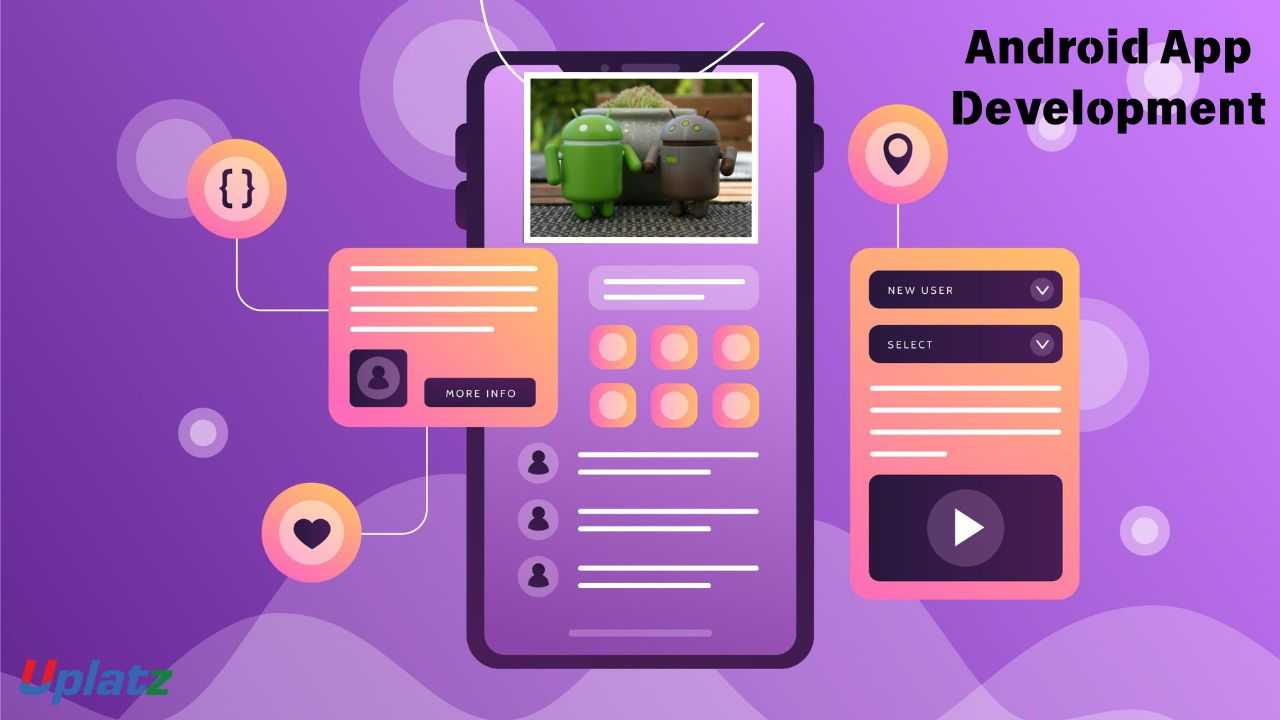Firebase A/B
Learn how to run experiments, optimize features, and improve app performance with Firebase A/B testing. Price Match Guarantee
Full Lifetime Access
Access on any Device
Technical Support
Secure Checkout
Course Completion Certificate
Price Match Guarantee
Full Lifetime Access
Access on any Device
Technical Support
Secure Checkout
Course Completion Certificate
 96% Started a new career
BUY THIS COURSE (
96% Started a new career
BUY THIS COURSE (GBP 12 GBP 29 )-
 86% Got a pay increase and promotion
86% Got a pay increase and promotion
Students also bought -
-

- Android App Development
- 10 Hours
- GBP 12
- 10 Learners
-

- Cloud Computing Basics
- 15 Hours
- GBP 12
- 89 Learners
-

- Google Analytics
- 20 Hours
- GBP 12
- 372 Learners

Firebase A/B: Mobile App Experimentation & Optimization is a comprehensive, self-paced course designed to help developers, product managers, and growth teams harness the full power of data-driven experimentation to enhance mobile and web app performance. This course bridges the gap between theory and practice, offering a step-by-step approach to setting up, managing, and analysing experiments using Firebase A/B Testing. With real-world examples and interactive learning modules, learners will gain practical experience in building, testing, and optimising app features that drive measurable impact on user engagement, retention, and monetisation.
At its foundation, Firebase A/B Testing is part of the Google Firebase ecosystem—a powerful platform for app development, analytics, and growth. It leverages Google Analytics for Firebase to measure experiment results and provides a controlled environment for testing new ideas before full-scale implementation. Whether testing new design layouts, modifying in-app messages, adjusting pricing strategies, or optimising onboarding experiences, Firebase A/B allows teams to make evidence-based decisions instead of relying on assumptions. The power of this tool lies in its seamless integration with other Firebase services such as Remote Config, Cloud Messaging, and Crashlytics, enabling teams to deploy changes, track results, and iterate without writing new app versions.
The course begins with the fundamentals of A/B testing, helping learners understand the science behind experimentation. You’ll explore the purpose of controlled testing, how to define hypotheses, and how to set measurable goals for each test. The initial modules cover how to link Firebase with your Android or iOS application, configure Firebase SDKs, and prepare your app for experimentation. Learners are introduced to Firebase’s Remote Config feature—a powerful tool that enables developers to dynamically change app behaviour and appearance without publishing a new version. Through guided demonstrations, you will learn how to create experiments that target specific user segments, test variations of features, and determine statistical significance.
As the course progresses, it transitions from basic setups to advanced experimentation strategies. You will learn how to design multivariate tests, compare multiple variations of a feature, and evaluate complex behavioural responses. The course provides practical insights into data interpretation—understanding metrics like conversion rate, retention, session duration, and revenue impact. By analysing experiment outcomes within Google Analytics for Firebase, learners gain the ability to identify which version of a feature delivers the most value to users.
Another key area of focus is personalisation. Firebase A/B testing goes beyond one-size-fits-all solutions by enabling customised experiences based on user segments. You will learn how to use Remote Config and audience targeting to deliver personalised content and features—for example, showing different onboarding flows for new versus returning users, or promoting region-specific offers. This personalisation helps improve engagement, satisfaction, and long-term user loyalty.
The course also explores integration with Google’s ecosystem, including tools like Google Ads, BigQuery, and Firebase Cloud Messaging. Learners will understand how to combine experiment data with advertising campaigns, link behavioural insights to marketing strategies, and export experiment data for deeper statistical analysis using BigQuery. By connecting Firebase A/B testing with other analytics and engagement tools, professionals can create a complete optimisation loop—from hypothesis to implementation to measurable growth.
A distinctive strength of this course is its hands-on, project-based approach. You’ll work on real-world scenarios—such as optimising an e-commerce app’s checkout process, improving onboarding for a fintech app, or testing ad placements in a mobile game. These projects encourage learners to experiment confidently, interpret complex data, and make strategic decisions supported by evidence. Each section includes case studies illustrating how successful app developers and startups use Firebase A/B testing to accelerate growth, minimise risks, and achieve higher retention rates.
Additionally, learners will explore cross-platform experimentation—understanding how Firebase A/B can be applied across iOS, Android, and web apps. The course details how to maintain consistency in user experience across platforms while adapting experiments to suit each platform’s performance dynamics. This knowledge is crucial for developers managing multi-platform applications or products used by diverse audiences.
As mobile app ecosystems evolve rapidly, Firebase A/B Testing provides a sustainable way to adapt and improve continuously. You’ll learn best practices for managing multiple tests simultaneously, avoiding data conflicts, and ensuring statistical reliability. The course also addresses ethical and technical aspects of experimentation, including user privacy, consent management, and compliance with app store guidelines.
By the end of the course, learners will have a deep understanding of how to use Firebase A/B testing as a strategic tool to make informed product decisions. They will be capable of setting up large-scale experiments, running data analysis independently, and applying results to enhance performance metrics such as retention, engagement, and revenue. More importantly, they will gain confidence in building a culture of experimentation within their teams—encouraging data-driven innovation rather than assumption-based development.
What You Will Gain
-
Understand A/B Testing Concepts – Learn the foundations of experimental design, hypothesis testing, control groups, and statistical confidence, ensuring your experiments yield valid and reliable results.
-
Set Up Firebase A/B Experiments – Gain practical skills in configuring Firebase Remote Config, creating test variations, and deploying controlled experiments directly to live users without republishing apps.
-
Analyse Results Using Google Analytics for Firebase – Master interpreting experiment outcomes, identifying winning variants, and turning raw analytics into actionable insights.
-
Optimise User Engagement and Retention – Learn how to apply experiment data to refine user journeys, enhance onboarding flows, and increase long-term engagement.
-
Apply Experimentation Across Platforms – Gain experience implementing A/B testing strategies in both Android and iOS environments, ensuring consistent optimisation across devices.
Who This Course Is For
-
Mobile App Developers seeking to improve app performance, feature adoption, and usability through data-driven iteration.
-
Product Managers wanting to test and validate new features, UI designs, or monetisation strategies before full-scale rollouts.
-
Growth Teams experimenting with engagement tactics, onboarding sequences, and user retention initiatives.
-
Game Developers optimising in-app purchases, ad placements, and progression systems through controlled experiments.
-
Startups and Entrepreneurs aiming for rapid product validation, efficient growth, and informed decision-making using minimal resources.
This course empowers you to take control of your app’s growth journey. Instead of guessing what users prefer, you’ll learn how to measure, test, and optimise every element of your application. By mastering Firebase A/B Testing, you’ll not only refine your technical skills but also develop a data-first mindset—a crucial asset for any developer, analyst, or product strategist in today’s competitive digital landscape.
By the end of this course, you will be able to:
-
Implement Firebase A/B testing in Android and iOS apps
-
Configure Remote Config parameters for experiments
-
Run and monitor multiple test variants
-
Interpret experiment results and apply winning variants
-
Integrate Firebase A/B with other Firebase tools (Analytics, Cloud Messaging, Crashlytics)
Course Syllabus
Module 1: Introduction to Firebase & A/B Testing
Module 2: Setting Up Firebase in Mobile Apps
Module 3: Remote Config & Parameter Management
Module 4: Creating and Running A/B Experiments
Module 5: Analyzing Results with Google Analytics for Firebase
Module 6: Experimentation for Monetization & Engagement
Module 7: Real-World Projects (UI Testing, Feature Rollouts, Pricing Experiments)
Module 8: Integrating Firebase A/B with Other Firebase Tools
Module 9: Interview Questions & Answers
Upon completion, learners will receive a Certificate of Completion from Uplatz validating their expertise in Firebase A/B testing and app experimentation.
This course prepares learners for roles such as:
-
Mobile App Developer
-
Growth Engineer
-
Product Manager
-
Game Developer
-
Data Analyst (Mobile Apps)
-
What is Firebase A/B testing and how does it work?
Answer: It’s a framework for running controlled experiments in mobile/web apps using Remote Config and Analytics to compare different feature variants. -
How does Firebase A/B testing differ from Google Optimize?
Answer: Firebase A/B focuses on in-app/mobile experimentation, while Google Optimize (now deprecated) was for web-based A/B testing. -
What role does Remote Config play in Firebase A/B testing?
Answer: Remote Config allows you to dynamically change app behavior and UI without publishing a new app version. -
What types of metrics can be measured with Firebase A/B tests?
Answer: Engagement, retention, revenue, crash-free users, conversions, and custom events. -
Can Firebase A/B testing be used for feature rollouts?
Answer: Yes, features can be rolled out gradually to specific user segments before full deployment. -
How does Firebase determine the winning variant in an experiment?
Answer: It uses statistical analysis based on experiment goals and user behavior to identify the variant with better performance. -
What is the role of Google Analytics in Firebase A/B testing?
Answer: It provides tracking, reporting, and statistical validation for experiments. -
Can Firebase A/B testing run multiple experiments simultaneously?
Answer: Yes, but careful planning is needed to avoid overlap and conflicting results. -
What are the limitations of Firebase A/B testing?
Answer: Limited advanced customization compared to dedicated experimentation platforms, and requires Firebase integration. -
How would you use Firebase A/B in a mobile game?
Answer: To test UI flows, optimize in-app purchases, experiment with ad placements, and improve user retention.









